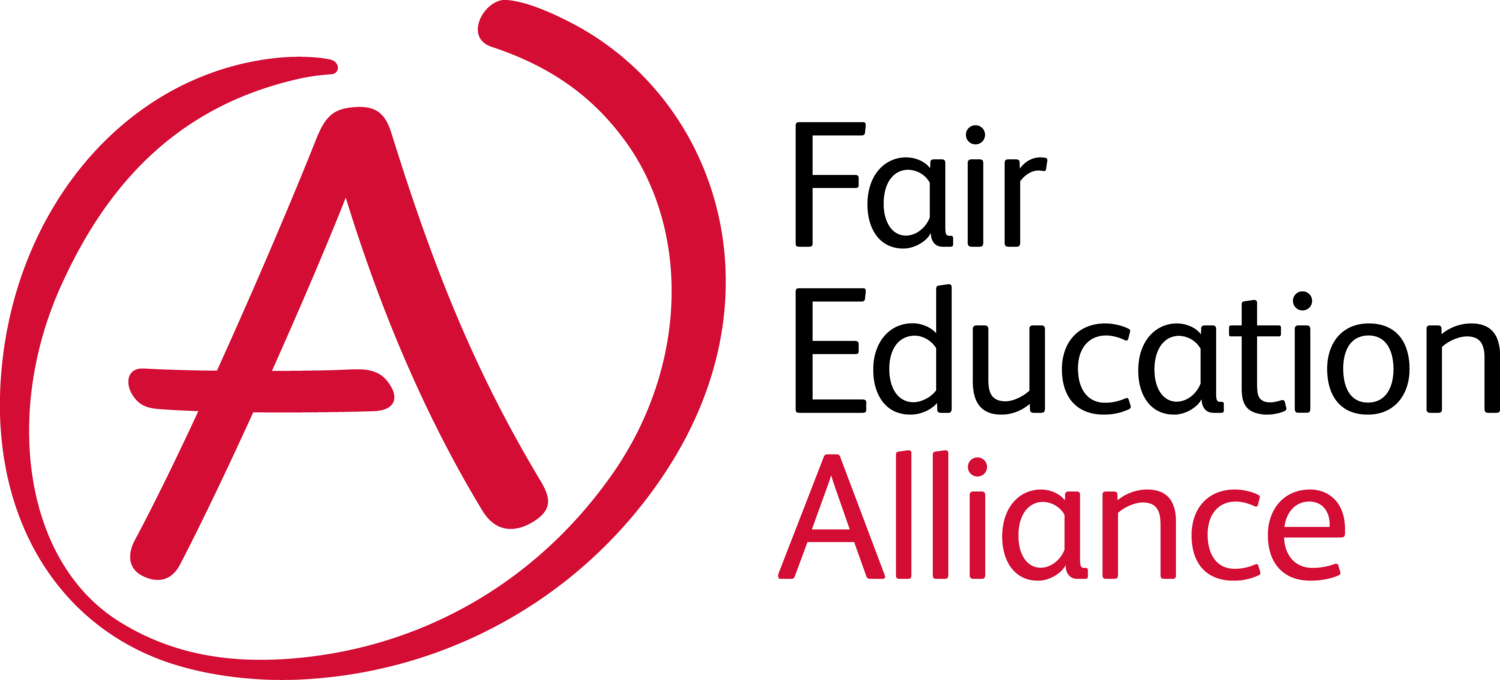Over 100 organisations call for a national commitment to reduce educational inequality as report finds poorer students are less than half as likely to pass GCSE English and maths than their wealthier peers.
The Fair Education Alliance, a coalition of over 100 organisations, has today published its fourth annual Report Card, measuring progress towards its five ‘Fair Education Impact Goals’ which aim to narrow the gaps between the most advantaged and least advantaged students at each stage of education including gaps in skills and wellbeing.
Key Messages from the Report
Progress has been too slow and patchy. Large gaps between the most advantaged and least advantaged students still remain across the country, and some gaps have widened. Small gaps at primary school level grow through to GCSE and university admission, leaving poorer students playing catch up for the rest of their lives.
The report’s findings include:
Disadvantaged pupils are more than 8 months behind their peers in reading, writing, and maths by age 11
Disadvantaged children are less than half as likely to achieve passes in GCSE English and maths.
Children from low-income families continue to be four times as likely to be permanently excluded from school
After taking their GCSES, disadvantaged children are six times more likely to be recorded as not in education, employment or training
Young people from disadvantaged backgrounds are nearly ten times less likely to go to a top university
The FEA believes improvements can be made and educational inequality reduced, but changes need to be rolled out everywhere to achieve this. There are pockets around the country where the gap is small and closing fast. We need to take proven strategies from these areas and change the system nationwide to ensure the benefits are felt by every child in every school.
The coalition has identified three priorities that can be achieved if measures are rolled out across the whole system to make education fairer for every child:
World-class teachers and leaders, particularly in the most disadvantaged areas
An education system which develops the whole child, promoting emotional and social competencies alongside academic attainment
Joined up support for all post-16 destinations, giving every student a choice about their future
We cannot do this alone – The FEA is committed to working to achieve this vision but we need a shared commitment as a country – from parents, young people, teachers, government, and businesses. Only together can we drive the systemic changes that will make education fair.
Quotes
Sam Butters, CEO of the Fair Education Alliance:
“We have seen progress in pockets across the country but it is not enough - systemic change now needs to be rolled out everywhere. We need to take proven strategies from these areas and change the system nationwide to ensure the benefits are felt by every child in every school. None of us can do this alone, we need a shared commitment as a country – from parents, young people, teachers, government, and businesses. Only together can we drive the systemic changes that will make education fair.”
Sir Richard Lambert, Chair of the Fair Education Alliance:
“These objectives are more important than ever in the current UK context, a period of economic and political uncertainty, and a time when the pressures that drive communities apart can sometimes feel more powerful than those that hold them together. Our evidence points to two firm conclusions. The first is that deprivation is not destiny: there are plenty of examples of communities that have dramatically improved their educational outcomes for young people despite tough economic circumstances. The second is that the economic gains that would arise from eliminating extreme underperformance in schooling would be very significant”
David Soanes, UK Head of Country, UBS:
“As a unique coalition of more than 100 members, combining powerful expertise and experience in addressing educational inequality, the FEA, in the period since the last report card, has brought increased collaboration, focus and momentum to this critical endeavour. We cannot be complacent. Progress is patchy; it needs to be faster and the headwinds are strong.”
Melanie Richards, Deputy Chair, KPMG in the UK:
“It is heartening to see from this report that in some parts of the country progress is being made in reducing the attainment gap. There is still a way to go if we are to level the playing field and remove the inequality that characterises the education and careers landscape in the UK. But this serves to reinforce our belief in the initiatives we are pursuing and gives us further motivation for the future.”
Andrew Ballheimer, Global Managing Partner, Allen & Overy:
“We are delighted to be part of the Alliance. It allows us to make a difference in a more concerted way and offers the chance to learn from others, which we value highly. As this report card makes clear, it is only through joined-up, system-wide action that we will turn the localised successes we have achieved to date into benefits for society as a whole.”
Notes to editors
For media enquiries please contact Joseph Dudley at jdudley@faireducation.org.uk during office hours, and Sam Butters via phone on 0776 682 7319 outside of office hours.
We would be happy to arrange broadcast appearances (Radio/TV) to discuss the report as well as print articles.
A full press kit with background notes and graphics can be found at faireducation.org.uk/press
